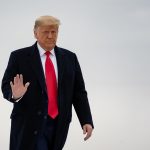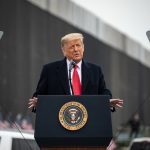In a new TV show set in 1923, a cowboy family in Montana encounters futuristic gadgets in town. A salesman tries to sell them a washing machine and a refrigerator powered by electricity. The young cowboy points out that buying these things means working more to pay for them, rather than enjoying more leisure time. This scene teaches about economic freedom and raises questions about modern life versus the past.
The story highlights how many Americans today pay various recurring bills just to stay in their homes. Taxes, utility bills, and subscription fees add up, making it hard for people to truly own their homes. Even in rural areas, residents face the threat of losing their homes if they can’t pay taxes. This raises concerns about the true meaning of ownership in today’s society.
This Executive Order is exactly what we have been waiting for. SEC and FTC mentioned. “Now they will no longer impose rules on the American people without oversight or accountability.”https://t.co/cdLBrhGQIi
— Tyler (@lolbaka1) February 19, 2025
In cities like New York, people pay high rents and utility bills, often never owning anything. Even those who own property still have to pay fees indefinitely. As the cost of living rises, many struggle to make ends meet. This lifestyle, normalized by many, raises questions about true happiness and ownership.
The return of President Trump has sparked debates about ownership and economic freedom. Trump’s focus on reducing government spending, cutting regulations, and overhauling the tax system aims to empower Americans to own their labor and wealth. By reducing taxes and fighting inflation, Trump seeks to create a fairer economic system for all.
Inflation, caused by excessive currency printing, erodes people’s savings and devalues their labor. The Trump administration aims to tackle these issues to ensure a stable economy. By promoting sound money policies and limiting government intervention, Trump’s approach aligns with principles of economic freedom and ownership.
In conclusion, a society that values private property fosters individual freedom and economic prosperity. President Trump’s efforts to reduce taxes and promote sound economic policies reflect a commitment to empowering Americans to own their labor and wealth. By following principles of economic freedom, society can ensure a prosperous future for all.
In a new TV show set in 1923, a cowboy family in Montana encounters futuristic gadgets in town. A salesman tries to sell them a washing machine and a refrigerator powered by electricity. The young cowboy points out that buying these things means working more to pay for them, rather than enjoying more leisure time. This scene teaches about economic freedom and raises questions about modern life versus the past.
The story highlights how many Americans today pay various recurring bills just to stay in their homes. Taxes, utility bills, and subscription fees add up, making it hard for people to truly own their homes. Even in rural areas, residents face the threat of losing their homes if they can’t pay taxes. This raises concerns about the true meaning of ownership in today’s society.
In cities like New York, people pay high rents and utility bills, often never owning anything. Even those who own property still have to pay fees indefinitely. As the cost of living rises, many struggle to make ends meet. This lifestyle, normalized by many, raises questions about true happiness and ownership.
The return of President Trump has sparked debates about ownership and economic freedom. Trump’s focus on reducing government spending, cutting regulations, and overhauling the tax system aims to empower Americans to own their labor and wealth. By reducing taxes and fighting inflation, Trump seeks to create a fairer economic system for all.
Inflation, caused by excessive currency printing, erodes people’s savings and devalues their labor. The Trump administration aims to tackle these issues to ensure a stable economy. By promoting sound money policies and limiting government intervention, Trump’s approach aligns with principles of economic freedom and ownership.
In conclusion, a society that values private property fosters individual freedom and economic prosperity. President Trump’s efforts to reduce taxes and promote sound economic policies reflect a commitment to empowering Americans to own their labor and wealth. By following principles of economic freedom, society can ensure a prosperous future for all.




